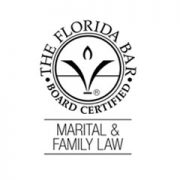Legislative Update Regarding Alimony Reform
The Alimony Reform effort for the 2017 Legislative Session has died in committee. This ends another effort at alimony reform that has failed several times in recent years: twice by veto by Governor Rick Scott and once when there was a session shutdown due to a dispute over healthcare.
This year’s bill would have provided set guidelines for calculating alimony, while also providing for criteria to deviate from those guidelines under certain circumstances. Scott vetoed a similar bill in 2016 which included a major impediment: it contained a 50/50 child time-sharing presumption clause, which the governor cited as his reason for the veto.
That presumption was removed from this year’s bill. Allen Dell attorney Philip Wartenberg, the current Co-Chair of the Family Law Section’s Legislation Committee, made the rounds in Tallahassee in February meeting with legislators to garner support for the bill in both Chambers. However, committee inaction on the bill in both Chambers has led to the bill’s failure this session. The future of alimony reform in Florida is now uncertain, but the laws on alimony are likely to remain the same for the foreseeable future. Any questions regarding the current status of Florida’s alimony laws can be directed to Mr. Wartenberg or any of the family law lawyers at Allen Dell at (813) 223-5351.








 Allen Dell announces
Allen Dell announces 
